Squatting is a term used to describe when someone takes up residence in a property without the legal right to do so. Squatters have no lease or rental agreement, and they may not even have the permission of the owner of the property.
Squatting can take place in both residential and commercial properties, and it is often done when people are unable to pay rent or mortgage payments, or when they cannot find other suitable housing. It can also be done as an act of civil disobedience against perceived injustices in land ownership.
In Georgia, squatting laws vary depending on whether the property is residential or commercial, and there are several potential legal consequences for those who attempt to squat on another's property. Understanding these consequences and other aspects of squatter’s rights in Georgia real estate law is essential for anyone considering taking up residence on someone else's land without proper authorization.
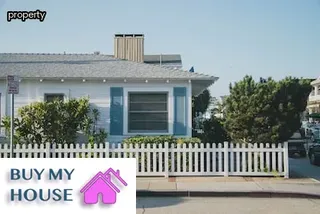
In Georgia, squatters are legally defined as people who have taken possession of a property without the explicit permission of the owner. Generally speaking, they must have had some form of continuous presence on the property for one or more years before they can be considered a squatter.
This is known in legal terms as “adverse possession” and it allows an individual to claim ownership over land that may otherwise not be theirs. In order to successfully establish adverse possession in Georgia, the squatter must prove that they have been occupying the land for at least seven years and that their occupancy has been open and notorious, meaning that any neighbors or passersby should have been aware of their presence.
Additionally, they must show evidence that they paid all taxes associated with the property during this period as well as proving that their occupancy was hostile, meaning it was done without any form of permission from the owner. Finally, it is important to note that squatters don't always need to live on a property in order to meet these criteria; simply having an item such as a shed or vehicle present on the property can be enough evidence to support a claim.
Squatter's rights in Georgia Real Estate Law can be a difficult concept to understand. Squatting is a legal term used to describe the act of occupying a property without permission from the owner or without having rights from a lease or rental agreement.
In Georgia, squatters have certain rights depending on the situation and length of time they have occupied the property. It is important for property owners to be aware of these laws in order to protect their legal interests.
For example, squatters who have occupied the property for seven years or more may gain legal title after satisfying certain requirements such as paying all taxes owed on the property during that time period. On the other hand, if an owner has had knowledge of a squatter being on their land for less than seven years but fails to take any action, they may not be able to get rid of them through eviction proceedings.
Additionally, if squatters improve or make repairs to the property while residing there, they may be eligible for compensation under Georgia law. Knowing how these laws work can help ensure that both parties are properly protected by understanding what is legally allowed and what is not when it comes to squatting in Georgia real estate law.

Adverse possession, also known as squatting, is a legal doctrine that allows individuals to gain ownership of a property without the permission of the original owner. In Georgia real estate law, adverse possession requires that an individual must occupy and possess the land for at least seven years while also paying taxes on it.
The squatter must prove they have been in exclusive control of the property, continuously paid taxes on it, used it in good faith and with an intention to own it for seven years or more before making a claim for ownership. The court will evaluate the circumstantial evidence presented by the squatter to determine whether their claim of adverse possession is valid.
If successful, the squatter may gain title to the property within Georgia's real estate law. This comprehensive guide provides a deeper understanding of what is required to make a valid adverse possession claim in Georgia's real estate law.
When understanding squatter's rights in Georgia real estate law, it is important to understand the difference between tenants at sufferance and trespassing. Tenants at sufferance are those who are living on a property without the consent of the legal owner or landlord, but they have not been evicted by a court order.
They may sometimes be referred to as holdover tenants. A trespasser, on the other hand, is someone who has no right to be on the property whatsoever and their presence may be considered illegal activity.
The distinction between these two types of squatters is important because it determines how much rights they have and how they must be treated by the owner or landlord of the property. Knowing these differences can help landlords deal with squatters in a more effective manner while still protecting their rights under Georgia real estate law.

When owning property in the state of Georgia, it is important to understand and be aware of one’s rights in regards to protecting your property from squatters. Squatting is when a person occupies a piece of real estate without permission or legal right, often with the intention of claiming ownership over it.
It is illegal in the state of Georgia and can cause serious financial losses for property owners if not addressed properly. Landowners must take the necessary steps to protect their investment and guard against potential problems that could come with squatting on their land.
This includes being familiar with Georgia's laws regarding squatters' rights, understanding how they may apply in different situations, and knowing what measures can be taken to prevent squatters from taking up residence on your land. Knowing these regulations will help ensure that your property is as secure as possible from unauthorized occupation by those who would otherwise try to take advantage of your real estate.
Removing squatters from your property legally can be a complex and time-consuming process, requiring a thorough understanding of Georgia real estate law. If a squatter has been living on your property for more than seven days, they may have rights to the space under Adverse Possession laws.
The best way to protect your property is to take steps before squatters arrive by posting “no trespassing” signs, locking doors and gates, and installing surveillance cameras. If squatters are already living on your land, you must send them a formal notice in writing that includes an order to leave the premises within thirty days; if they don’t comply with this request, you can pursue legal action in court.
Make sure to document all interactions with the squatter in question and keep copies of any eviction notices or orders served. Remember that it is illegal for you as the property owner to remove squatters yourself; instead, you must work through the legal system and follow judicial procedures.
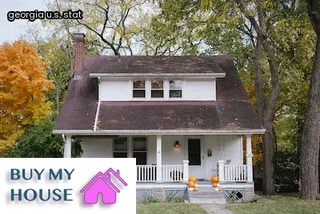
When attempting to protect yourself from squatters, it is important to understand the laws of your specific state. In Georgia, there are several strategies you can use to make sure your property is not taken advantage of by an unwanted squatter.
The first step is to create a clear and visible boundary delineation on your property as this will help establish ownership in the event of a dispute. Additionally, you should be aware of any applicable landlord-tenant laws and make sure all tenant leases include an occupancy clause that requires tenants leave the premises upon termination of their lease agreement.
Furthermore, if someone has been living on your property without permission for more than seven days, the law requires that you must provide notice stating that they are trespassing and must leave within 30 days or face legal action. Finally, it is also important to consult with an experienced attorney who is knowledgeable about real estate law in Georgia so that you can take any necessary steps to ensure that your property remains secure and protected from squatters.
When it comes to understanding squatter's rights in Georgia real estate law, it is important to know about color of title claims. As defined by the state, a squatter is one who occupies land or property owned by another and does so without permission or legal right.
In order to establish a claim for adverse possession, or ‘squatters rights’, the squatter must have been occupying the land for a certain amount of time as required by Georgia law. This is known as color of title claims and there are certain requirements that must be met in order for such a claim to be established.
The squatter must prove that they have been occupying the property for an uninterrupted period of at least seven years and that they have paid all taxes due on the property during this time. Additionally, they must prove that they made improvements to the property and kept up with maintenance while living there.
If these conditions are met, then the squatter can make a claim for ownership of the property through adverse possession under Georgia real estate law. Understanding these color of title claims is key when attempting to establish squatters rights in this state.
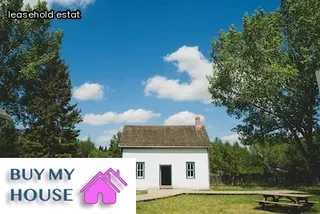
In Georgia, it can be difficult to find affordable home and car insurance. Finding the right coverage for your needs at a competitive rate is essential to protecting yourself and your property.
Understanding the legal requirements of squatter's rights in Georgia real estate law can provide insight into how you might be able to save on insurance costs. Knowing what types of policies are available and how they can protect you and your family from the risks associated with squatters may help you to make an informed decision about which option is best for you.
Comparing quotes from different providers is one way to ensure that you get the coverage that you need without breaking the bank. Additionally, understanding the legal implications of squatters can help you avoid any potential pitfalls when it comes time to negotiate a policy with an insurance provider.
In Georgia, while squatters may not have a legal right to the property they occupy, they do have some legal rights. Landlords and homeowners can legally evict a squatter in Georgia by following the necessary steps.
This process begins with sending the squatter an eviction notice, which must be personally served. The notice should include a date and time when the squatter is required to leave the premises, typically 30 days from when it was served.
If the squatter does not vacate after receiving the notice, then you can file an affidavit of request for dispossessory proceedings with your county court clerk's office. Once this is done, you will receive a hearing date where you can present your case before a judge who will decide if you are entitled to regain possession of the property.
Though it is possible to evict a squatter in Georgia without going through court proceedings, it is always wise to consult an experienced real estate attorney before taking any legal action.
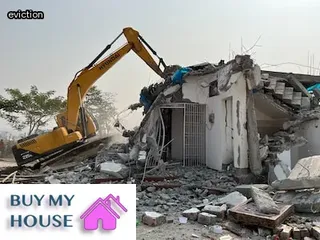
The consequences of not following proper procedures for eviction can be significant. Not only could it result in legal action and financial penalties, but it can also cause a great deal of harm to the parties involved.
Squatter's rights in Georgia real estate law provide very specific rules that must be followed when evicting someone from property. If these rules are not followed, the squatters may have rights to the property that the landlord was unaware of and this could lead to costly legal battles and an inability to remove them from the premises.
Additionally, if an eviction is done improperly, it can damage relationships between landlord and tenant as well as other members of the community. This could lead to decreased trust in landlords and ultimately affect their ability to find tenants for properties in the future.
Squatting in Georgia is illegal, and any persons found guilty of violating the law can face jail time. According to Georgia real estate law, squatters are not allowed to occupy a property without permission from either the owner or legal tenant.
If a squatter has been living on someone else's property without permission for more than seven days, they may be charged with trespassing and be held accountable for their actions. Georgia courts have upheld that squatting is considered criminal trespass, as well as other crimes such as burglary, theft and mischief.
Penalties for these offenses can range from fines to jail time depending on the severity of the case and whether or not anyone was harmed during the crime. Additionally, if any damage was done to another person's property, it may result in an increased penalty.
It is important for potential squatters to understand that squatting in Georgia is a serious offense with potentially severe consequences.
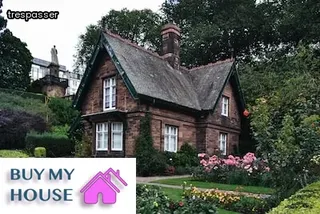
In Georgia, claiming squatter's rights is a complicated process that requires knowledge of the state's real estate law. To claim squatters' rights in Georgia, there are two legal pathways: adverse possession and tenant at sufferance.
Adverse possession is the more common option in which an individual occupies a property for a certain amount of time (known as the statute of limitations) without the permission of the owner. This act gives the squatter ownership over the property if certain conditions are met such as paying taxes, notifying the owner, and occupying only for a limited amount of time.
Tenant at sufferance is another way to claim squatters' rights in Georgia by renting or leasing a property from someone who does not own it. In order to successfully claim squatters' rights through this method, you must prove that you have been living on the property for an extended period of time with no disruption from the owner.
Both processes require detailed knowledge of Georgia real estate law so it is important to consult with an attorney before attempting to assert these rights.
In Georgia, a squatter may establish legal rights to the property after occupying it for seven years or more. This is known as "adverse possession," and is the shortest amount of time a squatter must occupy a property to gain legal standing in Georgia real estate law.
To qualify for adverse possession, the squatter must have exclusive, continuous and uninterrupted possession of the property for seven years or more without permission from the rightful owner. The squatter must also pay any taxes due on the property during their occupation.
Finally, they must take steps to claim ownership such as building a fence around their occupied land or posting "no trespassing" signs. If all these conditions are met, then after seven years of occupancy the squatter may be able to gain title to the land through adverse possession.
Adverse possession in Georgia real estate law is a legal principle that allows an individual to acquire title to property by occupying it for a period of seven years. Adverse possession in Georgia is often referred to as squatter’s rights and can be used in certain circumstances when a trespasser has been in continuous and exclusive possession of a property, without the owner’s consent.
In other words, if an individual occupies another person’s property for seven years or more, they may gain title to it through adverse possession in Georgia. To be successful in claiming adverse possession in Georgia, the claimant must prove that they have openly and continuously occupied the land for at least seven years, with no objection from the owner or others with legitimate interests.
Additionally, all taxes on the property must have been paid throughout this period. It is important to note, however, that any improvements made on the property will become part of the title once acquired via adverse possession.
With an understanding of what constitutes adverse possession in Georgia real estate law, one can make informed decisions about their legal rights regarding real estate ownership and occupancy.